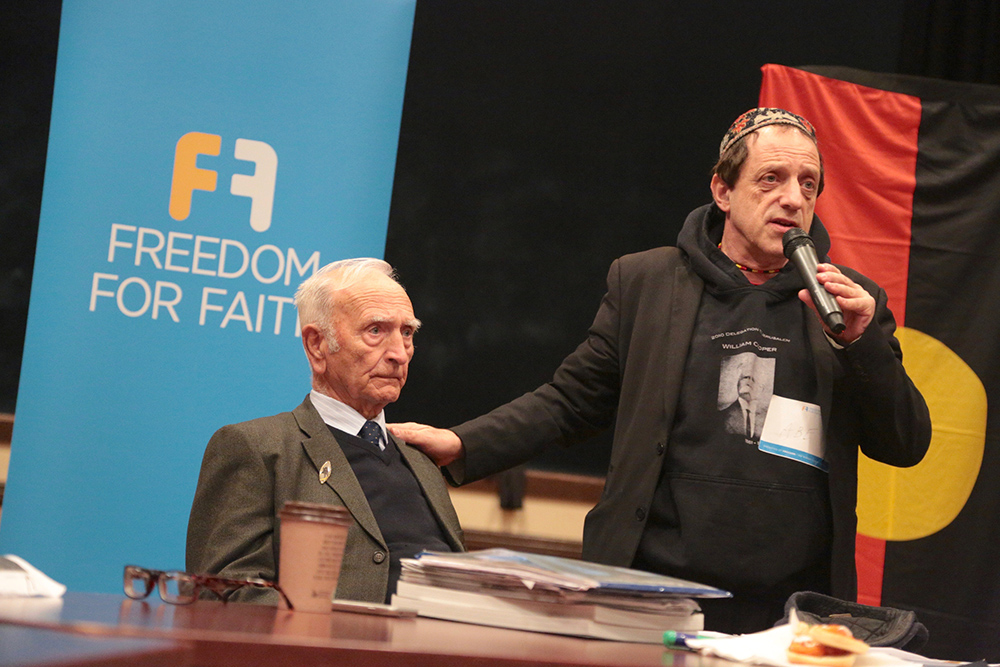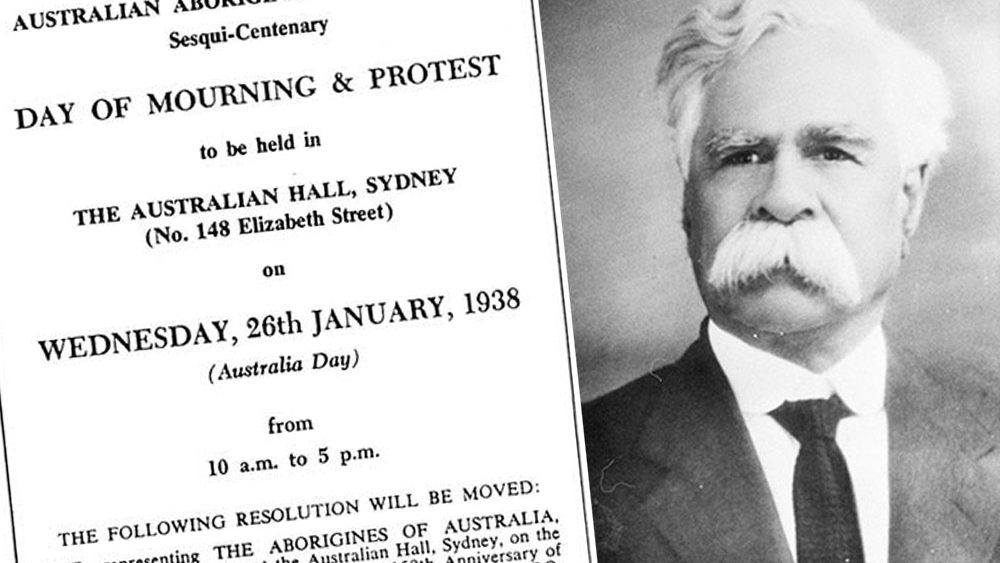A hero to Aborigines, Jews and Christians
William Cooper’s fight for justice lives on
A special mix of the Jewish, Aboriginal and Christian Communities gathered recently on sacred turf to honour a genuine hero.
The sacred turf was the Australian Hall (which miraculously still stands in Elizabeth Street, Sydney) where on January 26, 1938, “a day of mourning and protest” was held for Aborigines and persons of Aboriginal blood. It was the first combined interstate protest by Aborigines and sought constitutional recognition and fair treatment of the first Australians, a cause which in separate waves is still washing over and remaking Australia’s history.
The hero was William Cooper, a shearer and secretary of the Australian Aborigines’ League, who with other indigenous leaders had been forced to use the back door to get into the hall, and had to barricade the front against an attempt to throw them out.
On Australia Day in 1938, he said, “Now is our chance to have things altered. We must fight our very hardest in this cause. I know we could proudly hold our own with others if given the chance. We should all work in cooperation for the progress of Aborigines throughout the Commonwealth.”
The mix of Aborigines, Jews and Christians at the meeting last Thursday 7 September was very special. “There has never been a meeting like this in this hall”, Matt Busby Andrews said, an organiser of the event.
“We have Jews from Melbourne, including a Shoah (Holocaust) survivor, we have Pentecostals from Samoa, other Christians from the Hills district, in Sydney’s northwest. Also present were the great-great-great-grandson and great-great-great-granddaughters of William Cooper.”
The evening was hosted by Freedom for Faith, a Christian think tank who admire Cooper for the way he, as an Indigenous Christian believer, stood up for the freedoms of the Jewish people – on the other side of the world.
Christians and Aboriginals honouring a great Aboriginal leader seems logical, but why were senior members of the Jewish community wanting to honour this Christian man?
“All my life until I die I will educate the young and the old not to hate, until I die.” – Eddie Jaku, Holocaust survivor
The answer is what happened later in 1938. November 9 of that year was the “night of broken glass” (Kristallnacht – the name comes from the shards of broken glass that littered the street after Jewish owned business, buildings and synagogues were attacked across Nazi Germany).
“When William Cooper read in The Argus (a Melbourne newspaper) about the ‘night of glass’ on November 9, 1938, he thought of what could he do to stop the possibility of genocide,” Abe Schwarz, a Jewish leader, recounted. “But nobody would listen to a black-fella. He waited one week, two week, three weeks, when nobody did anything.”
Cooper led a delegation of Aborigines who marched into Melbourne’s Collins Street to deliver a protest to the German Embassy.
Eddie Jaku, a 97-year-old Holocaust survivor, told the meeting how he was trapped on Kristallnacht. “My voice is the voice of six million. On the 9th of November 1938, I made the biggest mistake of my life. I went home.” (He had been living safely in a boarding school under a false name, but missed his family.)
“That night Nazis broke into the house. They carved a swastika into my left arm.” He survived both Buchenwald and Auschwitz concentration camps. “All my life I ask why. All my life until I die I will educate the young and the old not to hate, until I die.”
Like many of Cooper’s protests it ended in seeming failure. The Embassy doors were barred.
“I think the reason was that that grandfather was a Christian man. He always went to church.” – Uncle “Boydie” Turner
But today many of the causes Cooper fought for have been given new life. For example, his petition to have an Aboriginal voice in federal government which the then Lyons Government prevented from being handed to George V, is now reflected in this year’s call by Aboriginal leaders for an Aboriginal voice to be set up in the Constitution. The petition has already been symbolically delivered, with Governor-General Peter Cosgrove presenting a replica to the Queen.
Next year at the 80th anniversary of Kristallnacht, Uncle “Boydie” Turner, William Cooper’s grandson, hopes to present Cooper’s 1938 written demands to the German Government in Berlin.

Uncle “Boydie” Turner, grandson of William Cooper, with Abe Schwarz Nicholas Ryan
In Israel at Yad Vashem, the Holocaust Museum, trees have been planted in honour of Cooper – after it was discovered that Cooper had made the only private protest against Germany in the wake of the night of broken glass.
Asked what made his grandfather take up the cause of others on the other side of the world when he had enough to campaign for regarding the dignity of his own people, Turner replied, “I think the reason was that that grandfather was a Christian man. He always went to church; he got it from Daniel Matthews who built a mission for the people because they did not have anywhere to go. One day he was driving in the forests and he came across a very rough camp. There were several children with a very sick woman. He picked them up, took them back to camp, and gave them a place to live. I was one of those children.”
Email This Story
Spread this story far and wide.




